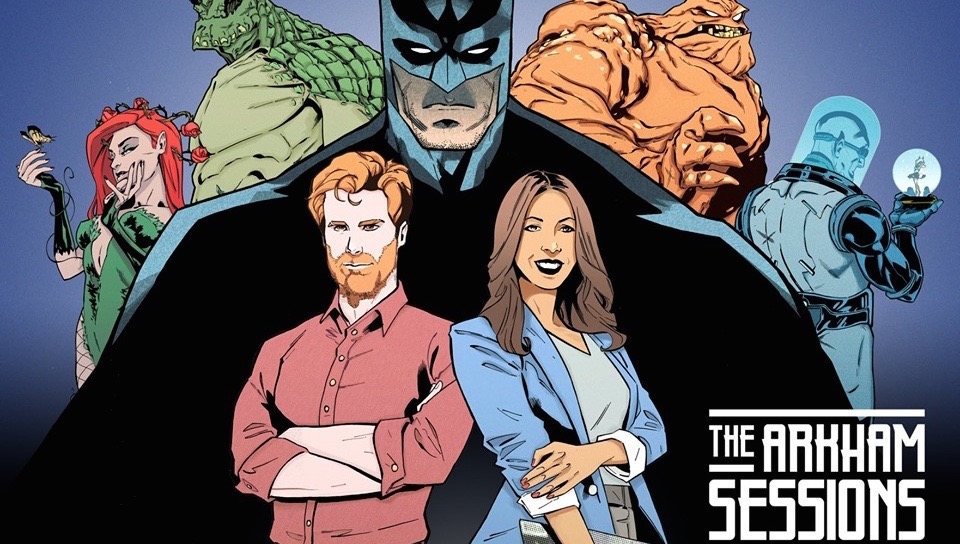The Arkham Sessions, hosted by Dr. Andrea Letamendi and Brian Ward, is a weekly podcast dedicated to the psychological analysis of pop culture, including Batman: The Animated Series, Steven Universe, the MCU, and Doom Patrol. Nostalgic, humorous, and even a little educational, each episode promises to lend some insight into the heroes, villains, and classic stories of the Dark Knight and more!
The Arkham Sessions, Ep. 168 – Loki
When Loki is arrested by the Time Variance Authority, an organization that monitors timelines and “prunes” or extracts any outliers (called variants), he learns that his alternate self was headed for destruction and devastation–and straight into the strangling hand of Thanos. Through his guide and department supervisor, Mobius, Loki also learns he was destined to make peace with Thor and achieve his brother’s forgiveness before his death. The TVA, however, has a mission for him. Loki is tasked with hunting a variant of himself who’s been uncatchable: Sylvie, a lady Loki who’s been hiding in apocalyptic corners of the timeline branches and averting the TVA Hunters for decades. Loki develops a deep connection with his female variant, eventually seeing in her the attributes he has been able to love until now: charm, intelligence, bravery – but also stubbornness, detachment, and fragility. Loki is able to appreciate and accept the flaws within Sylvie which, of course, are also parts of himself.
In this episode, Drea identifies the characteristics within Loki that are consistent with someone with Borderline Personality Disorder, a mental health condition characterized by difficulties with regulating one’s emotions. His mood swings, recklessness, and impulsivity make him difficult to be around, and his frequent backstabbing has left loved ones like Thor untrusting and tired of him. Loki’s dangerous antics and menacing lifestyle put others at risk. Like Loki, persons with BPD often experience disturbing emotional outbursts such as bouts of uncontrollable anger or rage–often followed by shame and guilt.
Because the Loki series centers on such a character, we begin to experience the disorder intimately: the ups and downs, the self-doubting and the self-sabotaging, and the inability to truly be present with others. Loki’s constant morphing and shifting of the self is a magical strategy, but a psychological one, as well. Confronting Loki with a version of himself allows all to see the challenges related to mistrust, his fragile boundaries, and his inner critic. We also learn that Loki’s personality is complex and includes enduring positive traits–Sylvie reminds him that he’s clever, playful, persistent, observant, humorous, decadent, and resilient. Loki’s love for Sylvie is arguably not incestual, but rather indicative of self-compassion, drawing up for Loki the healthy counterarguments to his inner voice that tells him: “I’m unlovable.” “I don’t belong anywhere.” “I’m alone.”
We agree that the show helps audiences grow an understanding of all types of “divergent” individuals, helping us see their qualities outside of a narrative of suffering.
Have psychology-related questions about Batman? Write to us via Twitter, @ArkhamSessions, or on Facebook. Or visit our official website.
And, don’t forget to subscribe to The Arkham Sessions on Apple Podcasts to get all of the latest episodes! And, be sure to join us on Patreon.

